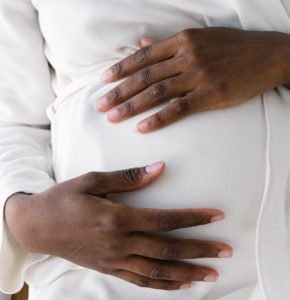Tensions are high between the abortion industry and the pro-lifers offering life-affirming alternatives. America is significantly reducing the number of abortions, and the abortion industry and their allies are incensed by the change in the legal landscape. Their financial bottom line has taken a big hit.
Pro-life pregnancy centers in New York, California and other states have faced an onslaught of legal assaults from state legislatures and governors who see them as competition for the abortion industry.
 The abortion-on-demand-until-birth crowd claims to represent the rights and physical welfare of women.
The abortion-on-demand-until-birth crowd claims to represent the rights and physical welfare of women.
But a quick comparison between the services offered by advocates for life and those offered by the abortion industry reveals who is truly on the side of women.
The first thing a woman needs if she suspects an unplanned pregnancy, is access to confirmation of her pregnancy. A new study published in the journal Contraception compared quick accessibility to pregnancy confirmation between pro-life pregnancy centers, referred to as crisis pregnancy centers (CPCs), and geographically paired abortion facilities.
The study showed pregnancy centers were nearly twice as often able to provide same-day appointments as abortion centers. It concluded, “Pregnancy confirmation is more accessible at CPCs compared to abortion facilities.”
Hands down women get better service from pro-life centers than the abortion industry.
 Once a woman finds out she is pregnant, she often seeks out advice on what to do. Truthful, science-based counseling is essential. Tragically, 95% of the women who went into Planned Parenthood for advice and guidance had abortions. By comparison, overall, 18% of pregnant women opted for abortions.
Once a woman finds out she is pregnant, she often seeks out advice on what to do. Truthful, science-based counseling is essential. Tragically, 95% of the women who went into Planned Parenthood for advice and guidance had abortions. By comparison, overall, 18% of pregnant women opted for abortions.
If the percentage of women having abortions shocks you, there is an equally shocking explanation. A recent peer-reviewed study shows 61% of women with a history of abortion experienced “high levels of pressure” to abort.
These “perceived pressures” from a variety of sources are “strongly associated with:
- Negative emotions about their abortion
- Disruptions of their daily life, work, or relationships
- Frequent dreams, flashbacks, or intrusive thoughts about their abortions
- Frequent feelings of loss, grief, or sadness about their abortions
- Moral and maternal conflict over their abortion decisions
- A perceived decline in their overall mental health that they attribute to their abortions
- A higher degree of desire or need for help to cope with negative feelings about their abortions”
Are abortion advocates helping women avoid the physical and emotional tragedy of abortion? Are they there to help pick up the pieces of their lives after abortion?
Hardly.
 Pro-lifers, from state capitols to grassroots workers, are filling the void.
Pro-lifers, from state capitols to grassroots workers, are filling the void.
States are stepping forward to level the playing field for America’s mothers and their unborn babies. They’re equipping parents in need to say “yes” to life by providing crucial resources during pregnancy, through birth and beyond.
Instead of abortion, Texas is providing compassionate, life-affirming resources that will continue up to three years after the baby’s birth. We’re talking about significant assistance that was increased to $100 million.
Tennessee Governor Bill Lee has proposed $100 million to assist pregnant mothers through pro-life organizations dotting the state with the goal to improve access to healthcare, information, and material support.
Governor Lee also proposed to expand state Medicaid to encompass services (including diapers) for pregnant women and their children and expanding services for children in foster care and others with special needs – a first in the nation.
While the Governor was announcing these progressive proposals at the capitol, pro-abortion extremists shouted protests from the gallery. Yes, those who claim to represent women were vociferously opposing these essential benefits for women and children.
The same people who berate conservative Republicans for not caring about anyone beyond the “fetus” are actively campaigning against efforts to provide comprehensive assistance.
As long as we stay focused on whom we’re there to help, progress will be made.
For women and their babies,
Leave a Reply